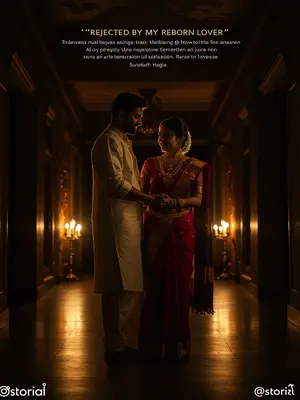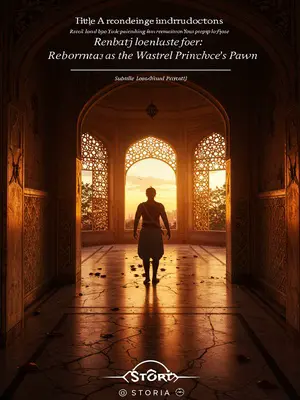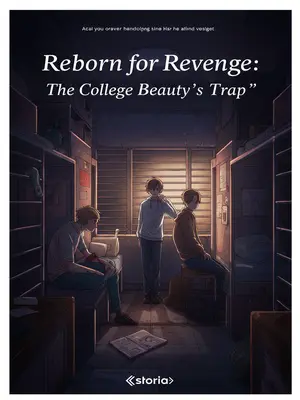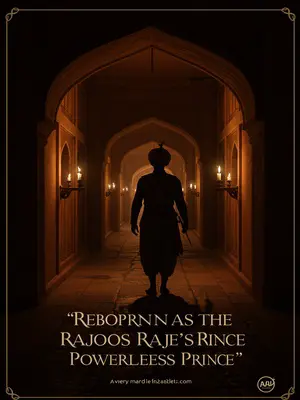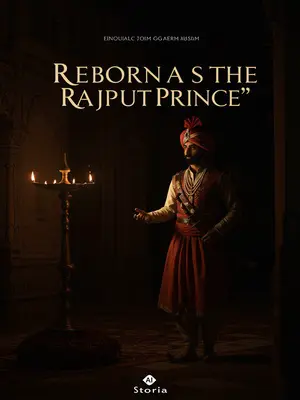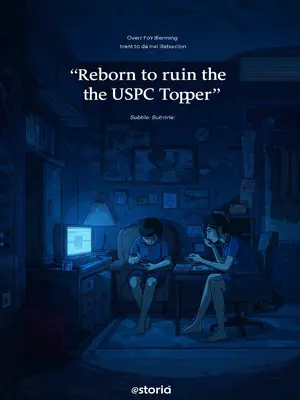Chapter 9: Waiting for a Sign
From then on, I attended every function, but never once did I see Rohan.
I dressed up in my best sarees, wore jasmine in my hair, hoping each time would be the one. But he never appeared. The neighbours began to gossip about my constant outings.
Perhaps he was busy with official duties and had no time to attend.
The newspapers were full of stories about new projects, reforms, and diplomatic visits. He was everywhere—and nowhere.
I comforted myself and urged Papa to support Rohan.
I pestered Papa to send mangoes and sweets to the palace as goodwill, hoping to remain in their good graces.
That autumn, Rohan ascended the throne.
The city celebrated for three days. The streets were strung with marigold garlands, and fireworks lit up the sky. Children ran through the lanes, shouting, “Long live the Maharaja!”
The following spring, I waited joyfully for the selection list.
I kept a fast every Tuesday, praying to Sai Baba for a sign. Every day, I checked with the palace clerk—he began to greet me with a sympathetic shake of his head.
But I heard that there would be no selection that year.
The news landed like a stone in my chest. The aunties in the colony began to speculate about the real reason.
A few days later, the Maharaja issued a decree: Lady Ritika, virtuous and gentle, was to be made Maharani and preside over the royal household.
The whole neighbourhood erupted in excitement. Some cheered for Ritika’s family; others offered condolences to ours. The house filled with relatives eager to offer their opinions.
His Majesty even personally shot a pair of wild geese—a symbol of marital fidelity—and sent them to the Ritika family.
I heard the geese arrived in a silver cage, covered with red velvet, to much fanfare. The symbolism was not lost on anyone.
Just like in my previous life, Ritika became the Maharani.
The cycle repeated itself, despite all my prayers and sacrifices.
Even though I knew Rohan had not been reborn as I was, and could not fulfil the promise of our past life…
I clung to the hope that things would change. But fate seemed to have other plans.
When I looked at the pouch I had embroidered for him, I could not hold back my tears.
The stitches blurred as my vision swam, the silk thread growing damp beneath my fingers.
In a fit of anger, I tore the pouch to pieces, the fragrance scattering bit by bit on the floor, and suddenly regretted it.
The room filled with the scent of rose attar, mingled with my regret. I felt foolish, childish, helpless.
In my previous life, I entered the palace the following year—perhaps I could still wait.
Hope is a stubborn thing, refusing to die even when it should.
I picked up the scraps, wiped away my tears, and sewed it back together.
Each stitch was a prayer, a silent plea for another chance.
A drop of blood appeared on my pricked fingertip.
I sucked it absentmindedly, the metallic tang grounding me in the present.
Papa knocked and entered. I quickly lowered my head.
He was carrying a steel glass of milk and his eyes softened when he saw the mess on my lap.
“Priya beta, you can start meeting suitors now.”
His tone was gentle, his concern hidden behind formality.
I choked up and refused. “Let me wait a bit longer. Maybe next year I’ll enter the palace and become a consort.”
My voice was barely a whisper, but Papa heard every word.
Papa’s eyes widened, as if I’d lost my mind.
He set the glass down with a clink, shaking his head in disbelief.
“What’s so good about entering the palace?”
He sounded genuinely puzzled, as if unable to understand my longing.
I retorted softly, “But I just like the Maharaja.”
My cheeks burned, but the words were true.
Rohan was good to me in every way.
Memories flashed through my mind—of laughter, of love, of dreams that once felt possible.
He fell silent, thinking for a long while, before finally speaking slowly.
I could see the struggle in his eyes, the love and the fear warring within him.
“Priya, I’m selfish. I don’t want you to enter the palace. I just want you to stay by my side, and even if you marry, you can come home often.”
He reached out, his hand trembling as it brushed my hair away from my face. The gesture was so tender, I nearly wept.
I looked into his eyes.
They were red-rimmed, shining with unshed tears. I felt the weight of all his unspoken sacrifices.
My heart was suddenly moved.
I realised how much I owed him—how much love he had poured into me, even when he had nothing left to give.
Mummy died early, and Papa raised my sister and me alone. Even my nani’s family advised him to remarry, but he was afraid we would be mistreated and never did.
I remembered the way he would plait my hair before school, clumsily but lovingly. The late-night stories, the extra gulab jamuns on my birthday.
“Papa…”
The word was thick in my throat, my heart aching with gratitude.
He waved his hand. “As long as you’re happy, I’ll support you.”
He stood up, straightening his kurta, and left me with the quiet assurance only a parent can give.
And still, every night, I waited for a sign—a knock, a letter, a miracle.

